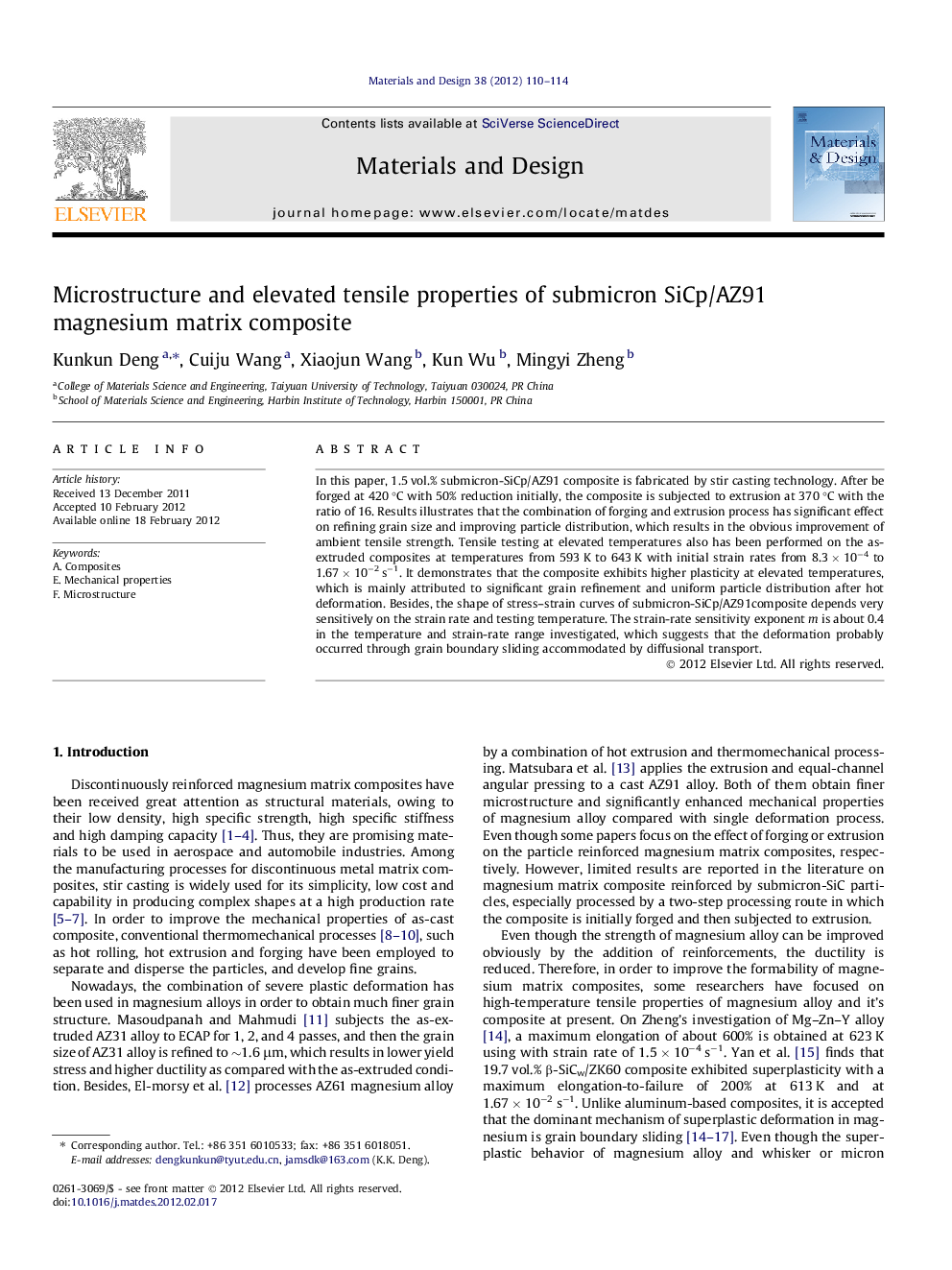| Article ID | Journal | Published Year | Pages | File Type |
|---|---|---|---|---|
| 830720 | Materials & Design (1980-2015) | 2012 | 5 Pages |
In this paper, 1.5 vol.% submicron-SiCp/AZ91 composite is fabricated by stir casting technology. After be forged at 420 °C with 50% reduction initially, the composite is subjected to extrusion at 370 °C with the ratio of 16. Results illustrates that the combination of forging and extrusion process has significant effect on refining grain size and improving particle distribution, which results in the obvious improvement of ambient tensile strength. Tensile testing at elevated temperatures also has been performed on the as-extruded composites at temperatures from 593 K to 643 K with initial strain rates from 8.3 × 10−4 to 1.67 × 10−2 s−1. It demonstrates that the composite exhibits higher plasticity at elevated temperatures, which is mainly attributed to significant grain refinement and uniform particle distribution after hot deformation. Besides, the shape of stress–strain curves of submicron-SiCp/AZ91composite depends very sensitively on the strain rate and testing temperature. The strain-rate sensitivity exponent m is about 0.4 in the temperature and strain-rate range investigated, which suggests that the deformation probably occurred through grain boundary sliding accommodated by diffusional transport.
► Grain size is refined and particle distribution is improved by hot deformation. ► Ambient tensile properties are improved obviously after hot deformation. ► Elevated tensile properties very sensitively on strain rate and temperature. ► GBS accommodated by diffusional transport occurs during elevated tensile test.
